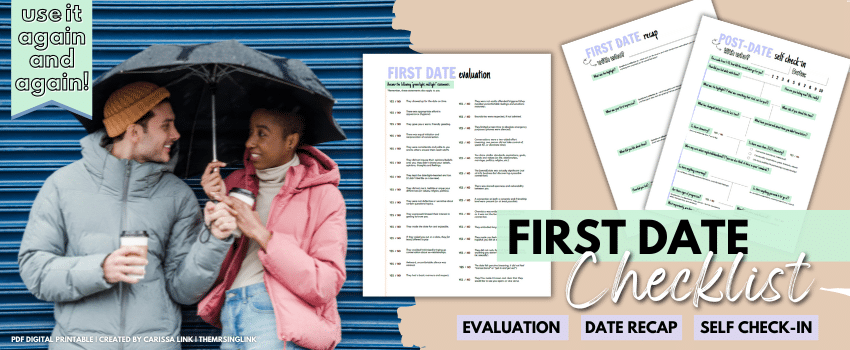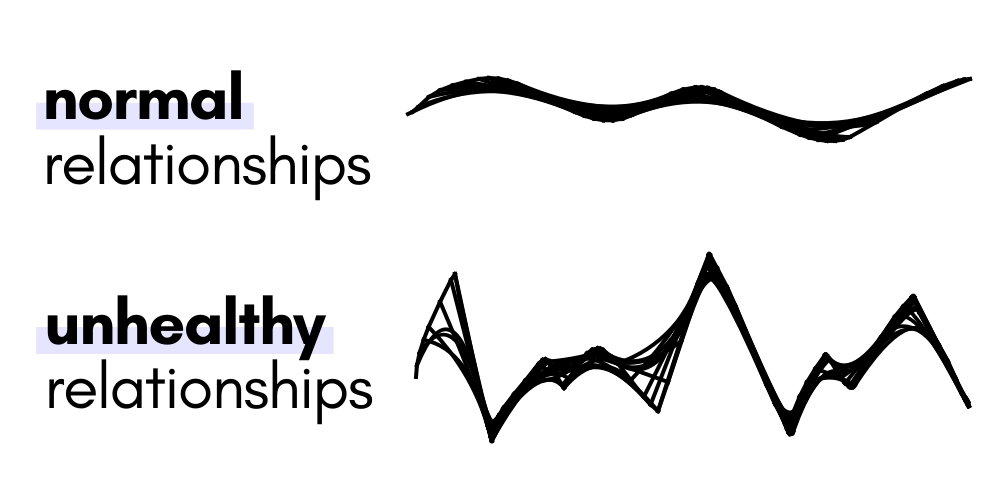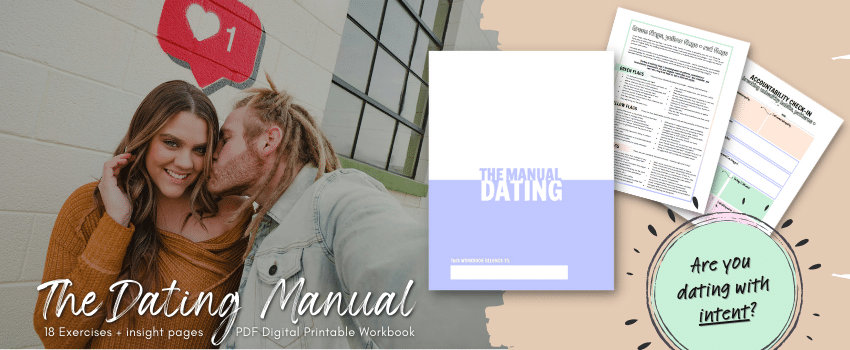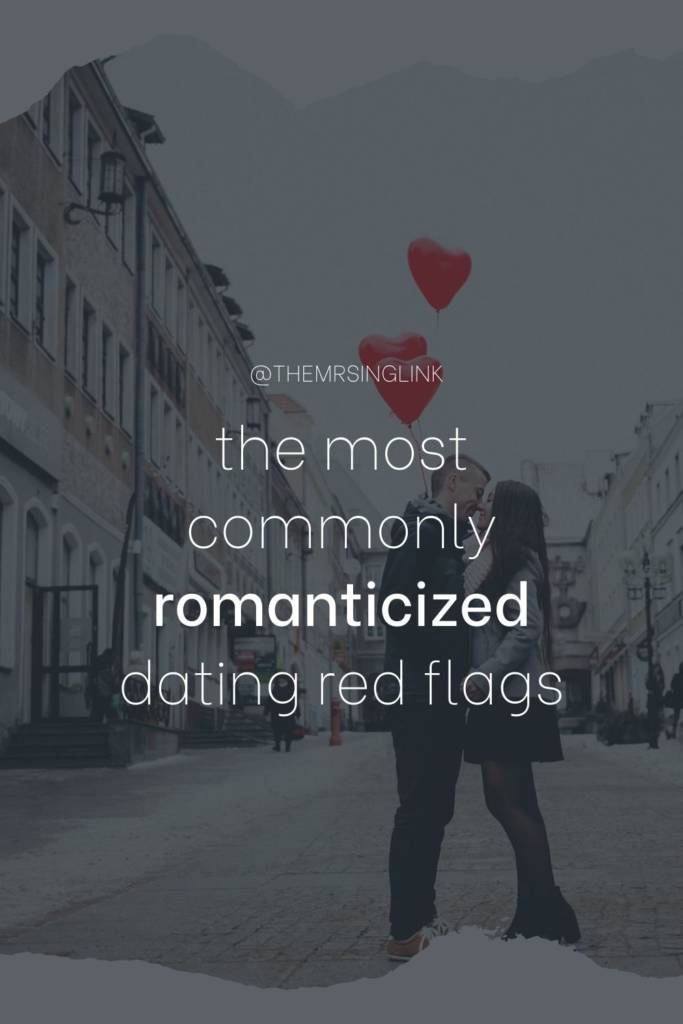We need to STOP romanticizing dating red flags. Because…”What you allow is what will continue,”, “The treatment we tolerate from others is a reflection of how we treat ourselves,”, and “Your worth is not determined by self-neglect.” Just a little dating food for thought there, since I am speaking from the very position where I, too, romanticized some of these common dating red flags.
Dating in itself is a way to peel back the onion layers of potential compatibility. Some onions are straight up rotten, yet we continue to romanticize sh*tty people, or *partners* in hopes the beast will somehow transform into Prince Charming. We do this when we shove those low-quality behaviors, and our own dignity, under the rug.
Dating red flags to-be-discussed..
People are not like houses – you are not obligated (or encouraged) to accept an offer (or settle) on a fixer-upper simply because you can *envision* its potential. People are also not buildable according to your will – you can’t break them down and begin from the studs expecting to make someone wrong into right for you.
There’s still this idea in dating that in order feel worthy and loved you must over-perform while accepting zero return. Don’t get me wrong, this works both ways. We cater so much to the whole Love-Bombing thing being one-sided, but honestly I think we’re also Love-Bombing by way of tolerance (of maltreatment), over-performance and self-neglect.
Now, sure, we’re all wounded in some way, and everyone needs and deserves love….but not at one’s own total expense (dignity).
Where am I going here? Well, even you may play a guilty part in these common dating red flags. We’re all guilty of enabling low-quality behaviors the same way we are guilty of being the ones acting on them. It’s about time to take a step back at the bigger picture – with the whole frame in view – from the self-accountable side, and to ask yourself:
What are you allowing to continue making you unhappy?
Is self-neglect your motivator (common denominator) in gaining love and approval from others?
Do you often rely on giving others the benefit of the doubt (to help, save or fix them), or have “high hopes” for others to change?
Do you often feel it is your responsibility to “earn” or “be worthy” of someone’s love, to prove your worth and win their affection?
Are you constantly battling the fear of losing someone, often resulting in others withdrawing from the relationship?
Are you addicted to emotional chaos (constant extreme highs and lows) in your dating life and relationships? Is this a familiar/reoccurring environment that feels comforting, “safe” or seemingly normal to you?
How are you treating yourself in comparison to how you treat others?

We need to stop romanticizing these dating red flags
The raging forest fire
That first-sight kind of love. An instant connection. This wild, undeniable, uncontrollable chemistry that spells S O U L M A T E, twin flame or The One. As much as I love the fact there are people who experience a strong, innate connection with one another, I’m sticking to my guns in that authentic Love is a slow-burning flame, not a forest fire. I’ve got the scars to prove I’ve dabbled with the forest fire before. And, in the end, that wasn’t the person God chose for me.
We usually depict the flames of fire to be that burning passion while glowing embers are that of a fading spark, but I see it differently. The flames of fire are, indeed, hotter than the embers, but flames can be unpredictable and destructive. Embers are still hot, you know.
Yet we know enough about the utter damage from wild forest fires around the globe, so why are we less to bat an eye when this concept is presented between chemistry in people? You risk inevitable and possibly uncontrollable burn-out, along with other unstable severities that are just as toxic, dysfunctional, and destructive. Some examples are over-sharing, over-extending, over-performing and disregarding red flags because you see their ‘potential’ or this desirable, fantasy-like ‘image’ of who you hope they will be and not who they actually are.
Over-sharing: getting deep into intimate stories about your personal life, trauma, previous relationships, finances and/or emotional expectations.
Over-extending/giving: being overly available emotionally, physically and with your time through keeping your schedule open for them, taking/making every opportunity to be together, overstaying your welcome (and vice versa), canceling plans to be together or accepting/accommodating last-minute advances, as well as being intimate (physically and emotionally) too quickly too soon.
Over-performing: the act of doing something as a way to gain love and approval, proving or auditioning your value in order to be “chosen”, or as a way to reaffirm and preserve emotional security/validity (i.e., you haven’t heard from him in a while and you saw that he’s out drinking with the guys on social media, so you text him to let him know you are available if he needs a designated driver – water, snacks and your crash-pad included.)
Fantasized potential/image: ignoring/minimizing the fact they owned up to struggling with fidelity because they are the best sex you’ve ever had (you’re convinced the strong physical connection will compensate, or even reverse his inability to be faithful).
There’s also a more manipulative form called Love-bombing. Check it. And it may not be by you, per se. Where others are guilty of Love-bombing, you’ll experience a person’s intense efforts in showing you affection and attention resembling infatuation. Many don’t even feel there’s anything *dangerous* about that. Unfortunately, love-bombing is more disingenuous, strategic, and self-centered; it’s severe desperation disguised as that “perfect” description of romantic interest.
This premature behavior is romanticized early on in dating and relationships because it resembles that “knight in shining armor”, the feeling of being “swept off your feet” or soulmate-level of compatibility right out the gate. Therefore, many are conditioned to go in search of that “love at first sight” or “instant, firework connection/chemistry” and to solely base the potential and success of a partner and relationship on it.
Hot + cold intensities
Does he love me, or does he not?
It’s true that every relationship has its ups and downs – no relationship is linear. But healthy relationships won’t go hot and cold, up and down, forward and backward to the extremes.
*Take a look at the example photo below. Healthy relationships are often confused as boring and complacent (because we’re constantly warned about relationships becoming and staying that way, especially during the dating process) when really we’re confusing boredom and complacency with peace, stability, certitude, alignment, and harmony. Great, now I sound like a hippie. But there really is an important distinction between what’s normal and what isn’t in terms of hot and cold extremes.

For example,
Normal: He calls/texts you roughly every day (though there are sporadic days here and there where space is being taken, honored, and respected both ways). He also initiates/prioritizes making time together (respectively, in advanced, and consistently) while also maintaining a life outside of you and the relationship.
Hot and cold extreme (not normal): His texting habits are off the wall. One minute he’s smothering you with kissy-emojis and verbal affection, then goes MIA for almost a week; when you are in touch again it’s as if nothing happened or everything’s ‘fine’. He cancels plans with you last-minute, while also initiates last-minute plans (falsely making you feel like a priority while expecting you to bend over backwards for him inconveniently); this becomes routine. Or he makes plans with you one week – days in a row, in fact – which makes you feel oh-so-special, then resists or declines seeing you indefinitely, making the next time you get together so far up in the air that you could essentially disappear and he wouldn’t even question your existence.
Healthy relationships are not derived, built, or sustained by chaos. Defining ‘chaos’ can be a bit tricky if you happen to be the contributor, enabler, or romanticizer. Some actually feel their relationship thrives off the rollercoaster of emotional highs and lows because, in the end, it “makes us realize we have *the hots* for each other“, while ultimately negating the fact they’ve created a perpetual cycle of dysfunction revolving around chemistry.
I’m going to go out on a limb and say it’s really about the “exhilarating“, angry, make-up sex. So, in a sense, emotional highs and lows are romanticized, enabled, and conditioned in relationships because this is means passion, or electricity (adrenaline).
It’s really…not….though. It’s self-destructive. There is nothing safe, stable, authentic, benevolent, or trustworthy about inconsistency, unpredictability, insecurity, and uncertainty, especially when they run hot and cold. And if you’re already experiencing hot and cold intensities, inconsistencies, or opposite extremes while dating…that’s a telltale sign of what to expect (and worse off) down the road.
[pt_view id=”bb67dcde9b”]
The downward spiral of self-neglect + betrayal
Are you hiding or minimizing parts of yourself just to seem likable, agreeable, and “easy-going”? Are you making yourself small in hopes to keep someone around because you’re afraid that if, God-forbid, you bend too far the wrong way they will say you’re “too much” or “not enough” and then up and leave?
First of all, I say hold the door wide open for them on their way out. But that’s easier said than done for most.
It’s important to know the difference between sacrifice and [self] neglect/betrayal. Everyone makes sacrifices in life and relationships. Neglect is the continuum of minimizing and purposefully denouncing your sense of self and individual needs; meaning, you no longer claim self-responsibility. Plainly, it is the allowing and continuing of your suffering, whether by your own doing or another’s. Inevitably this can lead to self-sabotage.
How might self-neglect or betrayal be evident and obvious in dating? For starters, these things do not require over-thinking.
- They become the sole focus in your life, to the point your own literally no longer matters; you’ll even believe that because they’re that important to you it’s expected that you’ll be as important to them in that way.
- Your No’s don’t mean No and your Yes’s don’t mean Yes; i.e., you’re not ready for intimacy but they are, and because they are you want to honor that over your readiness.
- You’re hurt by something they did or said but instead of addressing your pain to them you justify what they did or said by blaming yourself; the opposite is also evident, by making them solely responsible for your feelings.
As someone who also experienced areas of self-neglect and betrayal, a common denominator I [now] realized was also a culprit was a lack of boundaries. Boundaries, strangely, can be difficult in the *exciting* phase of dating because they almost seem to want to work against each other. It really isn’t unusual to *want* to make yourself more available for someone you’re genuinely interested in. But at what point are we dismissing our boundaries and nose-diving towards self-neglect/betrayal? That’s the big question to consider.

A lack of personal boundaries (early on in dating) can look like:
- Allowing someone to overstay their welcome in your home; not standing your ground in saying, “It’s 10 o’clock, and I’m calling it a night.”
- Being the one mostly initiating quality time and conversation; you tolerate a one-sided role rather than bringing awareness of imbalance – “I won’t be the only leg this relationship stands on.”
- Refusing to address certain things that make you feel *uncomfortable* (behaviors that you would consider “too much” or over-bearing even though they are good-natured); i.e., they “surprise” you at work (too often, inconveniently), acquaint themselves with your family or friend-group (randomly adding them on social media or DM’ing them), or they show up at your place unannounced (when you’re busy or not anticipating visitors).
- Loving someone *harder* while they do not; you may be moving at a pace that isn’t normal/natural (to them) or considered *healthy*.
A simple question to all of this is typically Why. That is for you to unpack on your own, but for the most part its associated with fear. What that looks like is different for everyone, but it can often sound like:
“I am not worthy of love.“
“If I do/don’t do this, I won’t be rejected.“
“If I make the other person happy, then they won’t leave me/stop loving me.“
“I’m scared I will end up alone.“
“I am too much or not enough.“
So how is all of this being romanticized? Personally, I think it’s romanticized because it has been tolerated as the norm. Our norm today, thanks to technology, is instantaneous. Instantaneous texts, replies, connections, feelings, emotions, etc. That means we’re likely to either rush things or be avoidant, think less critically and rationally or over-think/analyze everything, as well as to expect more and accept less of others, or be completely boundary-less and tolerate to the point of self-neglect.
I don’t know about you but that sounds like a recipe for DISASTER.
For me, it’s a concept most often misunderstood, over-complicated, and therefore the least desired. We’re called to serve others (and many *really* hate that)….yet we can’t do that if we’re not taking proper care of ourselves.

